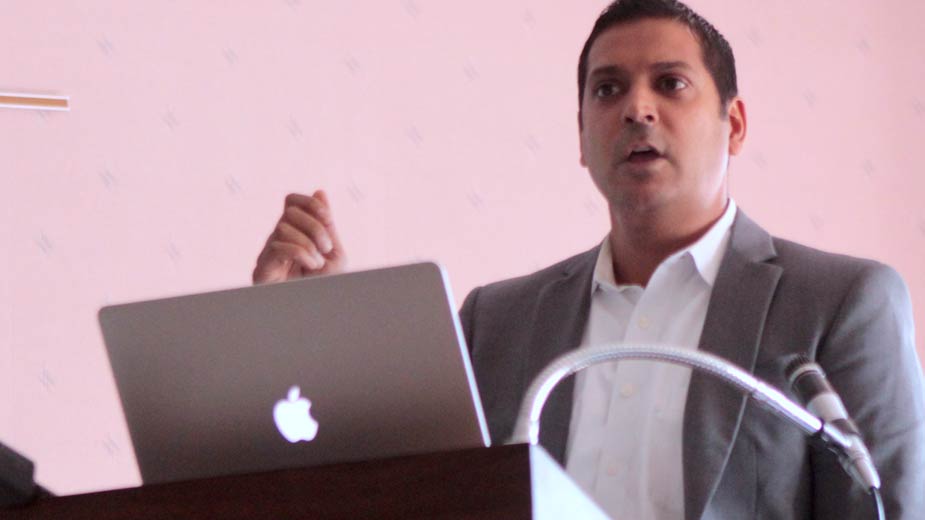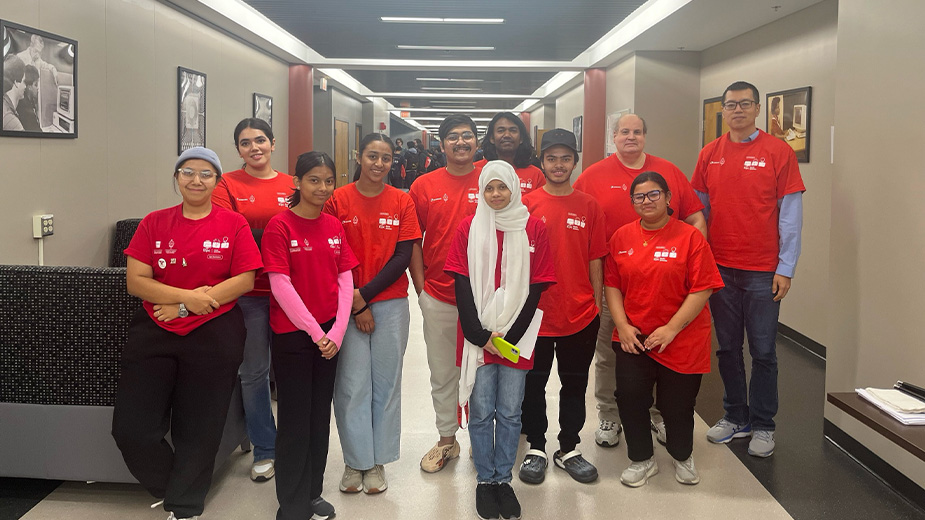Mohip Reports Year-One Progress to Commission
YOUNGSTOWN, Ohio – Progress and problems alike were evident in the progress report for the 2016-2017 school year that Youngstown School District CEO Krish Mohip and district officials presented to stakeholders and the Academic Distress Commission on Monday.
Mohip highlighted several signs of progress, among them, a marked reduction in school disciplinary offenses. “We saw this year a 55% reduction in out-of-school suspensions and a 33% reduction in in-school suspensions,” Mohip said.
There was also academic improvement. Average final grade point averages increased from 2.52 to 2.55 at Chaney, from 1.81 to 2.01 at East High and from 3.30 to 3.40 at Youngstown Early College. The number of students participating in the after school program increased from 300 to 1,200, and an all-day preschool program debuted in December. Officials plan to expand aspects of STEM curriculum to the preschool level, which increased its enrollment by over 30% during the year.
Mohip defended the reconfiguring of the district around a neighborhood school model – a decision that was driven by data and research, said Greg Kibler, deputy chief of data. “We have really shifted to accountability and data-driven decision making,” Mohip said.
The decision to send children to schools closer to where they live is expected to decrease to one mile the maximum distance a child will have to walk and even less for young children. Ride time for children on the bus is expected to decline from a high of up two hours under the previous system to no more than 45 minutes under the new system.
Mohip praised the shared-service agreement between Choffin Career and Technical Center and Mahoning County Career and Technical Center. Announced in June, the decision will allow schools to share administrative services while providing more career training options for students. “It shows what happens when communities come together, put their egos aside and start doing what’s right for children,” he said.
Test scores at East High, parental relationships with the schools and staffing concerns stood out prominently as challenges facing the district.
Mohip expressed some of his gravest concerns over the AIR Assessment scores at East High School where 90% of students are scoring below proficiency. Only 0.47% of students rated as proficient in geometry and less than 3% in Algebra I in 2017.
He called parental involvement both a highlight and a challenge. “I am personally going to make sure that I have monthly meetings out in the schools,” he said. Mohip said that he engaged in about 90 community events over the course of the past year.
Staffing is an ongoing concern, officials said. The district needs to hire 47 teachers before the start of the school year. Teachers are especially needed in the fields of math, science and foreign languages.
Two members of the Academic Distress Commission, Vincent Shivers, an instructor at Choffin, and Jennifer Roller, president of the Raymond John Wean Foundation, were present along with Chairman Bryan Benyo, president of Brilex Industries. Youngstown City Schools was placed in Academic Emergency in 2010 and Academic Watch in 2011. The commission acts in an advisory role to the CEO.

Academic Distress Commission members include Vincent Shivers, Bryan Benyo, chairman, and Jennifer Roller, vice chairman.
Reading from a prepared statement after the presentation, Benyo said, “Over the past year, putting students and educators first has not come easily for some individuals and groups. We can only hope this will change in the coming school year.”
Benyo also praised Mohip’s commitment and dedication on the job along with the district’s senior leadership team. “I expected there would be a lot of organizational work, a lot of foundation work that would be occurring,” he said. “As the year progressed, a lot of the functional deficiencies in organization and effectiveness in the system came to be revealed or uncovered.”
The fact that Mohip was hired shortly before the start of the school year placed “clear limitations on his ability to implement change at the start of the year,” Benyo said.
Looking beyond many of the organizational challenges of his first year, Mohip voiced a desire to deal more with improving instruction and engaging students in the learning process. “It’s gotten better to the point now where we can really start focusing on developing high-quality instruction.
Copyright 2024 The Business Journal, Youngstown, Ohio.



